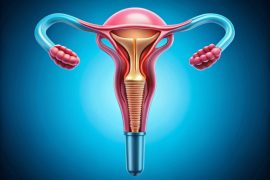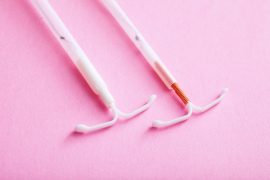Understanding Ovulation and Fertility
The term ovulation pertains to the discharge of a mature egg from the ovary, which occurs approximately once a month. The egg travels through the fallopian tube, waiting for sperm to fertilise it. The fertile window is when a woman is most likely to conceive. This window lasts about six days, including five days preceding the ovulation and the day of ovulation.
Hormones play a vital role in fertility. The follicle-stimulating hormone helps to stimulate the growth of follicles in the ovary, which contains the eggs. Luteinising hormone (LH) surges just before ovulation, triggering the discharge of the egg from the follicle.
The Role of Data in Fertility Tracking
- Accurate Timeline : Fertility tracking involves recording information about menstrual cycles, basal body temperature, and cervical mucus changes. Ovulation test kits can provide additional information about the surge in LH that occurs just before ovulation. Tracking this information can help determine the fertile window more accurately. For example, if a woman’s cycle length is typically 28 days, she can predict that ovulation will occur on day 14. However, if she tracks LH surges, she can pinpoint ovulation more accurately and optimise her chances of conceiving.
- Better Reproductive Health : Interpreting and using the data effectively is also crucial in optimising reproductive health. For example, couples can use the recorded data to make lifestyle changes, such as improving diet and exercise, to increase their chances of conception. The data can also help identify potential fertility issues, prompting couples to seek medical advice when necessary.
- Identify Irregularities : Furthermore, fertility tracking can help identify irregularities in menstrual cycles and ovulation, which could indicate underlying health issues. For example, a consistently short luteal phase (the duration between ovulation and the start of menstruation) could indicate a hormonal imbalance or other health issues that could impact fertility.
Other Factors That Can Impact Fertility
Lifestyle factors like excessive alcohol consumption, smoking, and poor diet can impact fertility. Maintaining a healthy lifestyle can improve fertility and increase the chances of conception. Certain medical conditions, such as PCOS or polycystic ovary syndrome, can impact fertility. It is recommended to seek medical advice if you are unsuccessful in conceiving after a year of trying.
Several treatment options are available for infertility, including fertility drugs, intrauterine insemination (IUI), and in vitro fertilisation (IVF). These treatments can help women who are struggling to conceive.
Conclusion
In conclusion, ovulation test kits are a valuable tool in fertility tracking. By tracking data, women can optimise their chances of conceiving and improve their reproductive health. However, it is essential to note that several lifestyle factors and medical conditions can impact fertility. Therefore, maintaining a healthy lifestyle and seeking medical advice when necessary can also increase the chances of conception.
FAQs
Q: What are ovulation test kits, and how do they work?
A: Ovulation test kits are tools that measure the level of luteinising hormone (LH) in a woman’s urine. LH surges right before ovulation, so by measuring the level of LH in the urine, the kits can predict when ovulation is likely to occur. This information can help pinpoint the most fertile days in a woman’s menstrual cycle and increase the chances of getting pregnant.
Q: Which lifestyle factors can affect fertility?
A: Several lifestyle factors can impact fertility, such as smoking, alcohol consumption, obesity, and stress. Maintaining a healthy diet, exercising regularly, reducing stress, and avoiding harmful substances such as alcohol and tobacco can help optimise reproductive health and improve fertility.
Q: I have irregular periods. What’s the best time to test?
A: This makes it harder to predict when to start testing ovulation kits. If your cycle is irregular and varies by a few days every month, take the average of the last 3 months. Count 12 days from the first day of your period and then take the test.
Q: When should I seek medical advice for fertility issues?
A: If you have been trying to conceive for over a year and have not succeeded, seeking medical advice is essential. Additionally, suppose you have irregular menstrual cycles, a history of sexually transmitted infections, or other health issues that could impact fertility. In that case, it is crucial to talk to a doctor.
Q: How can interpreting data effectively improve reproductive health?
A: Effectively interpreting the data can help couples make informed decisions about lifestyle changes that can optimise reproductive health, such as improving diet and exercise. Additionally, interpreting data can help identify potential fertility issues, prompting couples to seek medical advice when necessary. Using data to form decisions, women can increase their chances of conception and improve overall reproductive health.




Comments are closed.